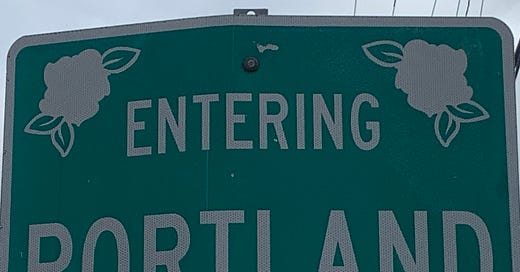Will Portland’s expensive change in government pay off?
As cost estimates rise and elections approach, Portland voters face high-stakes decisions over who will operate the city’s new, expanded form of government
It will cost the city of Portland more than $13 million annually in its new 12-member-council form of government than it costs in its current four-commissioner configuration.
We’ll save the debate over whether the city actually is functioning for later and focus today on the recent cost revelation, reported by Willamette Week, and why it’s a bad sign for anyone who hoped that a change government structure would make Portland “The City that Works” again.
A quick review for those who have not followed the transition closely: Portland is changing from a government with four commissioners and a mayor, all elected citywide, to one with 12 City Council members, with three selected from each of four districts via ranked-choice voting. Unlike in the current structure, the mayor will not be part of the Council. The mayor will oversee executive functions of the city, while a newly hired city administrator will oversee bureau leaders and staff.
To be sure, the change does accomplish some positive things. Electing Council members by district ensures more geographic diversity in representation. The city has long needed a professional administrator. The use of ranked-choice voting is an interesting experiment.
But the new structure falls victim to a common Portland mistake: It’s too complicated. That’s both the primary explanation for why the city will be more expensive to operate and the biggest reason that it probably won’t produce better results than the existing commission form of government.
When I was on The Oregonian editorial board from 2012-2015, I attended dozens of Portland City Council meetings and interacted with most of the Council members. The Council’s biggest weaknesses were obvious: special interests held vast power; there was inadequate collaboration among city bureaus and sometimes among Council members; and there was general lack of accountability.
The new form of government does not address any of those problems. In fact, it might make some worse.
Consider special interests: The combination of ranked-choice voting and a system where the top three vote getters in each district earn a spot on the Council, will make it possible for someone to be elected to Council with a low number of first-place votes. In fact, it’ll be interesting to see just how low that number might be. As a result, the threshold for the number of votes that special interests need to energize to elect their preferred candidates will be lower.
The increased viability of special interest candidates, in turn, could affect collaboration. Council members who are primary vested in a single issue or two have less incentive to collaborate with other Council members on bigger over-arching issues. They also might have less expertise to apply to that topic.
Then there’s accountability. Who’s going to hold this herd of political representatives, with differing priorities and constituencies, accountable for the greater good? A mayor who isn’t even a member of the council? A city manager who isn’t elected?
In many ways, Portland has created a miniature House of Representatives. Gary Conkling wrote yesterday about how well that’s working in Congress. It’s not.
So, what can be done to make Portland function better?
The best thing I can say about the new form of Portland government is that it probably doesn’t matter. Regardless of how government is structured, it only works well if the right people are in the right jobs – elected and unelected. The city manager, at least theoretically, is in position to improve the hiring and assigning of unelected city workers. As to the elected Council members, that’s up to voters – as it always has been. The job is harder now, if for no reason than because there are more Council members to elect. But it’s not impossible.
And, then there’s the greatest reason for hope. It really would be hard to have worse results than Portland has had for the past decade or more.
Mark Hester is a retired journalist who worked 20 years at The Oregonian in positions including business editor, sports editor and editorial writer.




